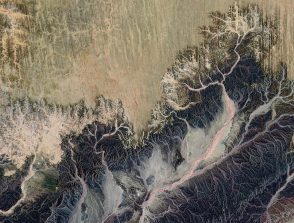Radionuclide Complexation and Retention: Experimental and Thermodynamic Insights from HZDR
27/10/2025
IPGP - Îlot Cuvier
10:30
Séminaires Géochimie
Salle 310
Norbert Jordan
At the Helmholtz-Zentrum Dresden-Rossendorf (HZDR), the Institute of Resource Ecology (IRE) plays a central role in understanding how radionuclides interact with the environment. The IRE’s research activities focus on the fundamental behavior of actinides, fission products, and lanthanides in order to assess their mobility and long-term fate. A key part of this work is the study of how these elements form complexes with inorganic ligands in aqueous systems and how they interact with mineral surfaces.
In my research, I address these questions by combining different approaches. Starting from controlled batch experiments, I investigate complexation and retention processes by applying advanced spectroscopic techniques (IR, TRLFS, XAS, etc.). This allows to gain molecular-level insights and to directly probe the speciation and binding environments of radionuclides in solutions and at solid–liquid interfaces.
Eventually, I use thermodynamic approaches such as the Specific Ion Interaction Theory (SIT) and Surface Complexation Models (SCM) to integrate experimental results into predictive models. Together, these studies provide a comprehensive picture of radionuclide behavior, bridging fundamental chemistry with applications in safety assessment of deep underground repositories.





